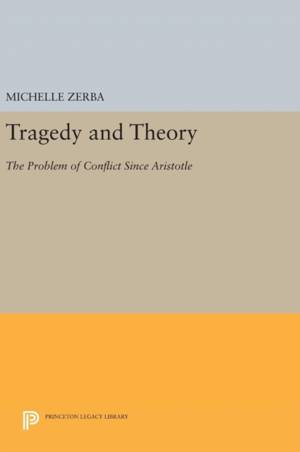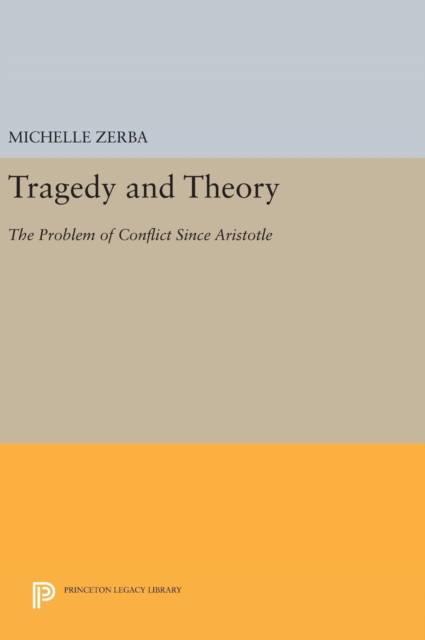
- Afhalen na 1 uur in een winkel met voorraad
- Gratis thuislevering in België vanaf € 30
- Ruim aanbod met 7 miljoen producten
- Afhalen na 1 uur in een winkel met voorraad
- Gratis thuislevering in België vanaf € 30
- Ruim aanbod met 7 miljoen producten
Omschrijving
Michelle Zerba engages current debates about the relationship between literature and theory by analyzing responses of theorists in the Western tradition to tragic conflict. Isolating the centrality of conflict in twentieth-century definitions of tragedy, Professor Zerba discusses the efforts of modern critics to locate in Aristotle's Poetics the origins of this focus on agon. Through a study of ethical and political ideas formative of the Poetics, she demonstrates why Aristotle and his Renaissance and Neoclassical beneficiaries exclude conflict from their accounts of tragedy. The agonistic element, the book argues, first emerges in dramatic criticism in nineteenth-century Romantic theories of the sublime and, more influentially, in Hegel's lectures on drama and history.
This turning point in the history of speculation about tragedy is examined with attention to a dynamic between the systematic aims of theory and the subversive conflicts of tragic plays. In readings of various Classical and Renaissance dramatists, Professor Zerba reveals that strife in tragedy undermines expectations of coherence, closure, and moral stability, on which theory bases its principles of dramatic order. From Aristotle to Hegel, the philosophical interest in securing these principles determines attitudes toward conflict. Originally published in 1988. The Princeton Legacy Library uses the latest print-on-demand technology to again make available previously out-of-print books from the distinguished backlist of Princeton University Press. These editions preserve the original texts of these important books while presenting them in durable paperback and hardcover editions. The goal of the Princeton Legacy Library is to vastly increase access to the rich scholarly heritage found in the thousands of books published by Princeton University Press since its founding in 1905.Specificaties
Betrokkenen
- Auteur(s):
- Uitgeverij:
Inhoud
- Aantal bladzijden:
- 314
- Taal:
- Engels
- Reeks:
- Reeksnummer:
- nr. 900
Eigenschappen
- Productcode (EAN):
- 9780691632612
- Verschijningsdatum:
- 19/04/2016
- Uitvoering:
- Hardcover
- Formaat:
- Genaaid
- Afmetingen:
- 178 mm x 254 mm
- Gewicht:
- 762 g

Alleen bij Standaard Boekhandel
Beoordelingen
We publiceren alleen reviews die voldoen aan de voorwaarden voor reviews. Bekijk onze voorwaarden voor reviews.











